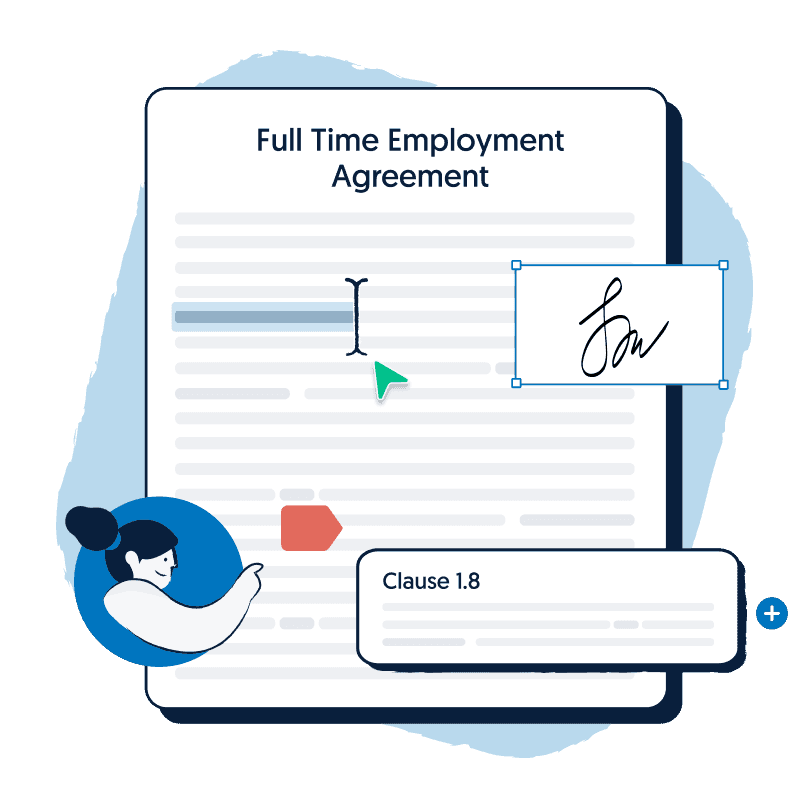Sydney-based lawyer, listed in Australian Financial Review’s Top 100 Future Leaders 2019 & 2021 Awards. Formerly Legal Intern at Lawpath.
A contract is a contract, and if someone breaches it, they can be sued. However, such issues are settled privately, and few cases have been brought to court. There have been instances whe the employer has failed to sue the employee because the content of the contract was unreasonable. However, the circumstances and context of each case vary and can lead to different outcomes.

Get your Full Time Employment Agreement legal document for free.
Non-Compete Agreements
A pile of paperwork usually coincides when starting work, and amongst that, there may be a non-compete agreement. This is a contract that prohibits an employee from working with a competitor. If your employer has a non-compete agreement and you choose not to sign it, they have the option not to employ you. However, courts generally do not approve of non-compete agreements, because they are often too far-stretched. The agreement should only contain what is necessary to protect the employer, and should not restrict the employee to such a great extent. If you are unsure about your contract, we’d advise contacting one of our contract lawyers.
Keywords to look out for are restrictions applying to distance and length. Examples include, “You are not allowed to work with a competitor within 5 km”, and the length it lasts for, which is usually 3 – 6 months. Read more on non-compete agreements here.
When Does a Contract Become Unreasonable?
Remember, the restrictions in a contract are in place to protect the employer. They can’t prevent you from starting a new job unless they will be at a loss. Situations where they lose money, would be if you steal their customers or open up a competing business close by.
The contract becomes unreasonable if your new employment does not affect your old employer. To think broadly, unreasonable terms are those that would make it difficult for you to find a job. An unreasonable term would be, “you are not allowed to work as any kind of engineer for 6 months”. This is unreasonable, because there are many different types of engineers, and how can a person expect to find employment if their only skill set is within engineering.
Can My Employer Sue Me?
If you ignore a term in a contract with your old employer, they can take you to court. However, the legal process is extensive and expensive, so often employers won’t take action. Also, if their work restriction was too wide and broad, they will know their case will be weak in court.
If you’d rather be safe, it is best to speak with your old employer and negotiate certain restrictions. Read here for more about post-employment obligations, including confidentiality clauses.
Unsure where to start? Contact a LawPath consultant on 1800 529 728 to learn more about customising legal documents and obtaining a fixed-fee quote from Australia’s largest legal marketplace.

Get a fixed-fee quote from Australia's largest lawyer marketplace.






